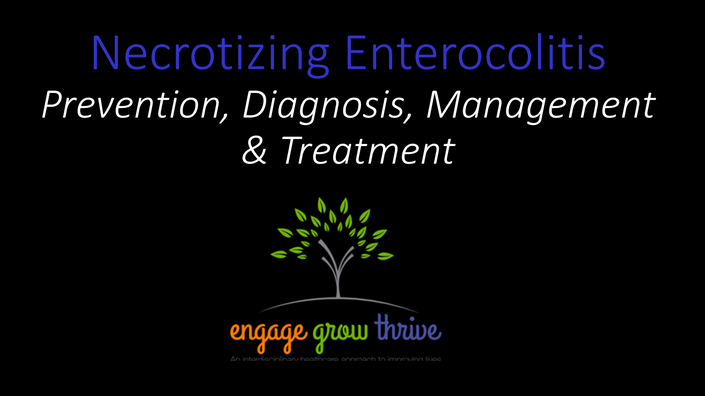
Necrotizing Enterocolitis: Prevention, Diagnosis, Management, & Treatment
Necrotizing Enterocolitis (NEC) is one of the most devastating complications seen in the preterm infant in the NICU. It significantly increases the risk of death and/or significant long term neurodevelopmental sequelae. This presentation describes risk factors for preterm bowel injury, the mechanisms of NEC, the clinical features, and recommendations for the prevention, diagnosis, and management of NEC.
Objectives:
- Describe three risk factors for the development of NEC in the small baby.
- Discuss two complications associated with NEC.
- Identify three best practices important in reducing the incidence of NEC.
- List two possible and potential ways to predict or make the diagnosis for NEC when it occurs.
- Define two current management approaches to minimizing harm when NEC develops.
- Describe two long-term consequences of NEC.
Total CE: 1.5
NCC Codes: NNP 2 or 7
NCC Codes: NIC 2 or 7
NCC Codes: LRN 3 or 7
Rx = 0.25
*This presentation was included in the Small Baby Care Specialist® Program
Last updated: November, 2021
Your Instructor

Dr. Jae Kim is the Division Director of Neonatology in the Perinatal Institute at Cincinnati Children’s Hospital Medical Center and a Professor of Pediatrics at the University of Cincinnati College of Medicine. His special areas of clinical and research interests include neonatal nutrition, neonatal bowel injury, bedside ultrasound and resuscitation. He is a co-founder of the San Diego Mothers’ Milk Bank and the Director of an innovative, nationally recognized multidisciplinary program to advance premature infant nutrition called SPIN (Supporting Premature Infant Nutrition). He is the co-author of the book, Best Medicine: Human Milk in the NICU. He is an active Council member of the AAP Committee on Nutrition.